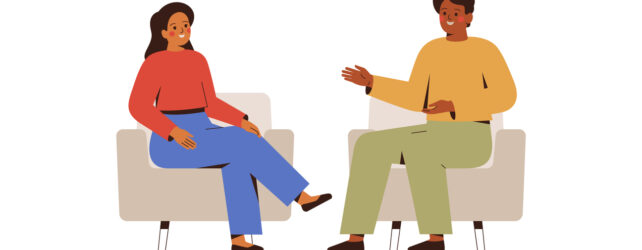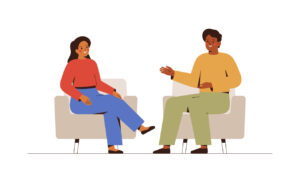Showing senior citizens dating and having fun is a reality.
By Becky Whetstone, Ph.D.

Golden Bachelor Gerry Turner has people of all ages turned on and tuned in to the reality show. (ABC/Brian Bowen Smith)
Although I have watched numerous reality TV and dating shows and ABC’s The Bachelor before, nothing compares to the first-time experiment that’s going on every Thursday evening, The Golden Bachelor. Whoever thought bringing an aging widower, 72-year-old Gerry Turner, and a group of wine-loving, over 60 single, vibrant women together in a Bachelor spinoff and reality show had it right. Instead of focusing on bikini and muscle shots in beautiful locations and the ridiculous backstabbing, manipulative, emotional teenagers, we get to see a whole new kind of love story with depth, emotional intelligence, and older adults who are often harshly judged, showing that we still matter and have a lot of life yet to live. I can’t thank them enough.
Indianan and retired restaurateur and hearing aid-wearing Gerry is grateful to be on his new journey and searching for the woman of his dreams after having lost his beloved wife and high school sweetheart, Toni, from a bacterial infection in 2017. As he tells the story of his one great love and how she died unexpectedly not long after they had just retired and built their dream house on a beautiful lake, we, in return, fall in love with him. Although men who are successful, vulnerable, confident, caring, thoughtful, and emotionally mature exist, they aren’t in huge numbers, and I think it’s because women don’t demand it enough. (By that, I mean, if we women refused to commit to a man who won’t be vulnerable, they’d have to step up, right?) I hope that lovable, caring, super-active Gerry Turner shows women of all ages what’s possible in real life and not to settle. You can find a man who mentally, physically, and emotionally works on all cylinders. Seeing these older contestants have fun, laugh, and do silly things recasts those of us of a certain age who still feel young and as if we still have a lot to contribute and a lot of life left to live. Even my husband enjoys the new series, notices the higher level of how contestants conduct themselves and isn’t embarrassed for me to tell anyone we’re watching it. With the advent of Golden Bachelor, we’re hoping for more reality and scripted shows that show people over 60 as having endless possibilities ahead. Based on what I’ve read, younger members of Bachelor Nation are all-in, too.
The one interesting thing I did notice, though Gerry claims to love natural women who have not enhanced their appearance, is that in the premiere episode, during the first rose ceremony, most of the women sent home hadn’t done any of that. As I watched each woman exit the lavish southern California mansion, I’d tell my husband, “See, he is sending the ones who look older or not in great shape home!” In theory, men may feel natural looks best, but in practice, not so much. Both final contestants color their hair, are super slim, and at least one of them has had facial enhancements, including dental veneers. I guess the trick is not to make the enhancements look fake or not obvious. Take that for what it’s worth, single women, but some things regarding attracting outgoing single men never seem to change.
Never in Bachelor history have we seen a man weep and feel anguish over the hard time of having to put a group of women who are all perfectly wonderful on the chopping block, realizing they aren’t The One. These women don’t seem to take his rejection personally; they may be sad or disappointed, but most claim to be reenergized and hopeful they can find a great man moving forward. Sometimes, we just need to see one great one to give us hope that others are out there, too, and they are. I hope Gerry’s willingness to be vulnerable and express emotions will show men how much women love and appreciate it. No woman wants a wimp who is too nice and won’t stand up for himself, but a gentleman, as in a gentle man, heck yes. Gerry is diplomatic, but he will set boundaries as they arise, tolerating no manipulative baloney. If I had my way, all the sexy young bachelors and bachelorettes we usually see with the Bachelor franchise would be replaced with older people in the sunset of their lives. Seeing young people fight over a leading man or woman, every person sexier than the next is old news. Watching the seasoned age group in Golden Bachelor should offer fun, entertainment, and hope to everyone.
As I write this, Gerry has narrowed it down to two women after going on hometown dates with three. His final choice will be revealed on November 30. In recent days, he has stated that the fantasy suites event, where the bachelor or bachelorette finally gets to spend time with their love interests alone and without microphones and cameras, when it is down to the last two choices, is pivotal. I imagine so. He is beginning a new chapter in his life and wants to spend his golden years with a healthy, high-energy, fun companion. He has hinted that conversations had there were the deciding factors for him in the end. He has the support of his family; his two grown daughters encouraged him to sign up for the reality show and agree that their dad is an extraordinary man. These adults are in a totally different place in life than the young ones, winding down rather than winding up. They’ve made being older and still in the game of life fashionable, and I am grateful. Now, let’s see what other older age range shows will inevitably sprout from the success of The Golden Bachelor. Put out the casting commercials producers, I can’t wait.
Note to younger people: Several years ago, I saw a quote from singer Miley Cyrus saying older people don’t have sex anymore. Every older person who read that probably spit out their coffee as they laughed. My message to you is that older people like everything younger humans like, and if they can do it, whatever it is, they will. When my mother was in her late 90s, she had a boyfriend in her retirement home. When I’d come to visit, she’d leave her door unlocked for me, I’d walk in, finding them making out on the couch. Never assume we older folk are any different from you.
Becky Whetstone, Ph.D., is a licensed Marriage and Family Therapist in Arkansas and Texas* and is known as America’s Marriage Crisis Manager®. She is a former features writer and columnist for the San Antonio Express-News and has worked with thousands of couples to save their marriages. She can work with you, too, as a life coach. She is also co-host of the Call Your Mother Relationship Show on YouTube and has a private practice in Little Rock, Arkansas, as a life coach via Zoom. To contact her, check out www.DoctorBecky.com and www.MarriageCrisisManager.com. Don’t forget to follow her on Medium so you don’t miss a thing!
For licensure verification, find Becky Whetstone Cheairs.





 Becky Whetstone is an Arkansas native and has a Ph.D. in Marriage and Family Therapy from St. Mary’s University in San Antonio, Texas. She is a Licensed Marriage and Family Therapist (LMFT) in Texas and Arkansas.
Becky Whetstone is an Arkansas native and has a Ph.D. in Marriage and Family Therapy from St. Mary’s University in San Antonio, Texas. She is a Licensed Marriage and Family Therapist (LMFT) in Texas and Arkansas. 





















































































































